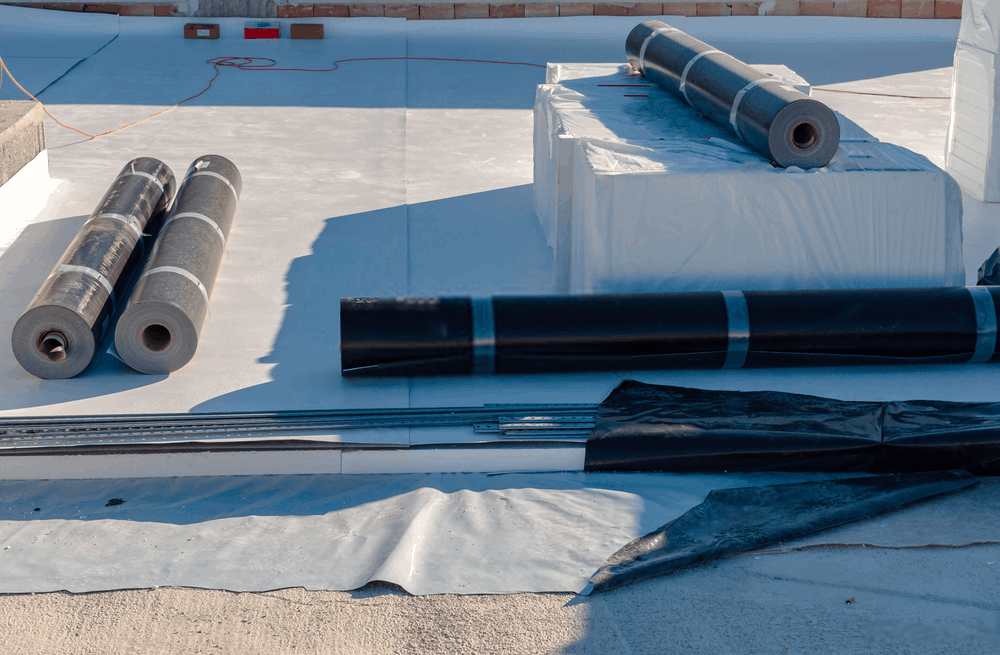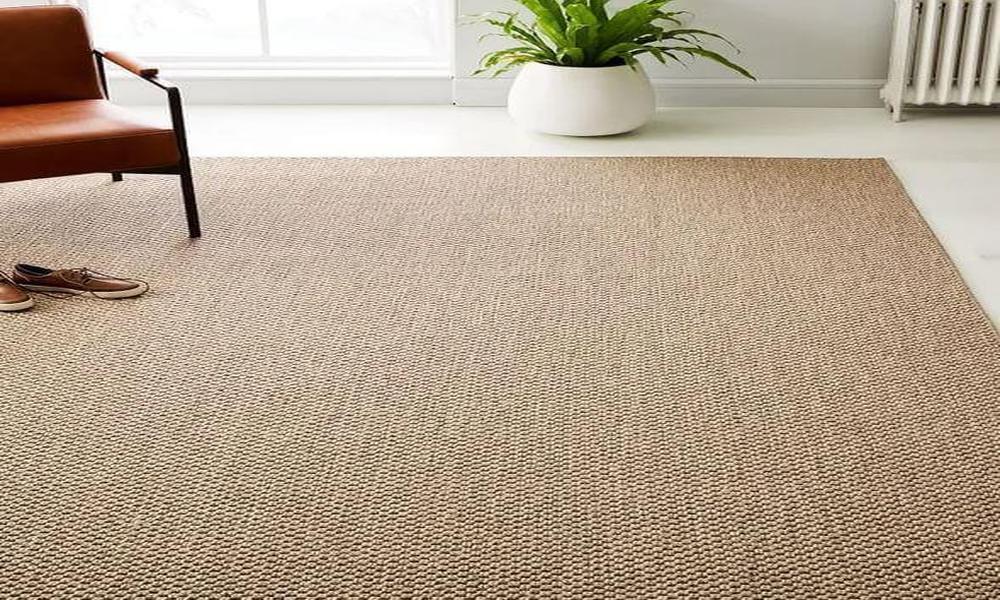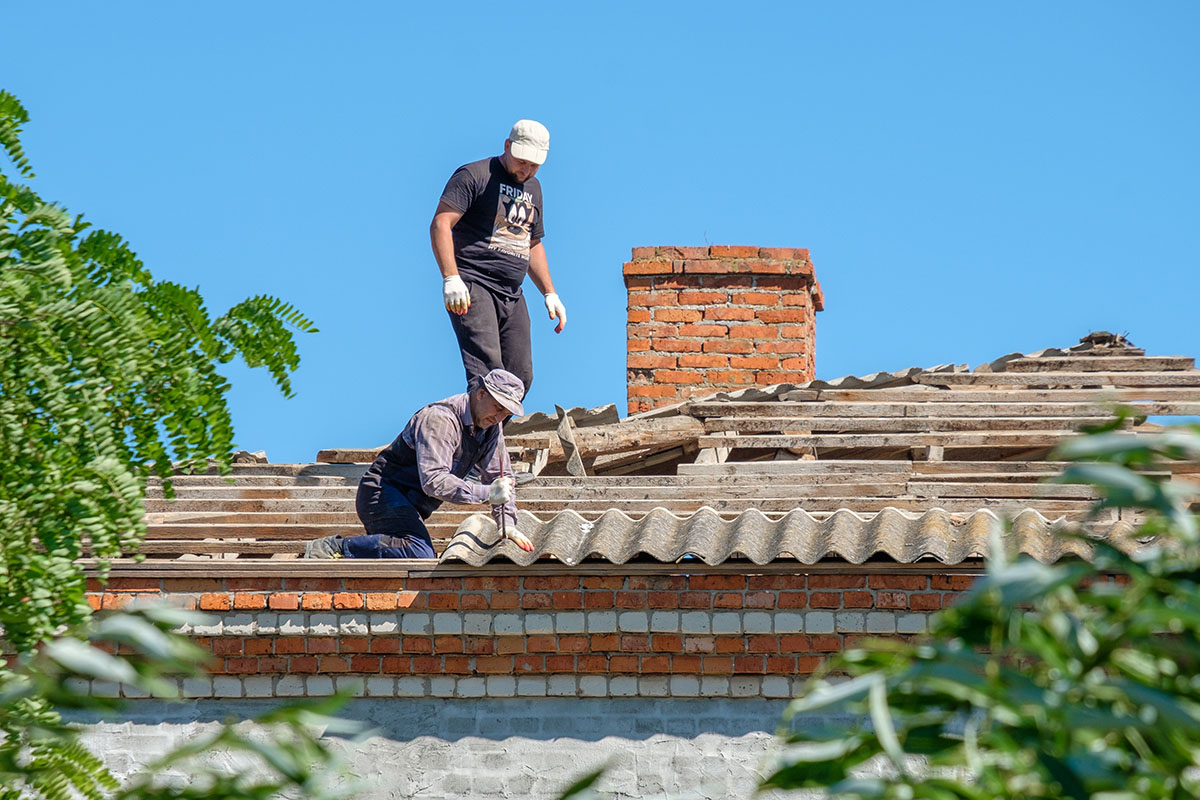
It is important to keep your roof in good condition to protect your home from water damage. A leaking roof can cause extensive damage to your home, so it is important to choose a roof waterproofing method that will work for your specific roof type and climate.
There are several different types of roof waterproofing available, but not all of them are equally effective. Some approaches may function well in certain climates, but others may not, so it’s critical to pick one that will work in the climate where you reside. Here are some of the most common roof waterproofing methods and what you should know about them:
- Rubber Membranes
Rubber membranes are one of the most common roof waterproofing methods. They are made from synthetic rubber material and are applied to the roof in a liquid form. Once they dry, they create a solid barrier that is impermeable to water. Rubber membranes are effective in most climates and can provide long-lasting protection for your roof.
- Acrylic Coatings
Acrylic coatings are another popular roof waterproofing method. They are applied to the roof in a liquid form and then left to dry. Acrylic coatings create a solid barrier that is impermeable to water, making them an effective waterproofing solution for most climates.
- Tar and Gravel Roofs
Tar and gravel roofs are one of the most common roof types in Singapore. They are made from a layer of tar that is covered with gravel. Tar and gravel roofs are effective in most climates and can provide long-lasting protection for your roof.
- Metal Roofs
Metal roofs are another popular roof type in Singapore. They are made from a variety of materials, including aluminum, steel, and copper. Metal roofs are effective in most climates and can provide long-lasting protection for your roof.
- Thatched Roofs
Thatched roofs are made from a variety of materials, including straw, grass, and reeds. Thatched roofs are common in tropical climates and can provide excellent protection from the sun and rain.
Roof waterproofing is essential for any roof, regardless of type or climate. There are numerous varieties of roof waterproofing treatments to select from, so make certain you choose the correct one for your area’s particular circumstances. If you’re unsure about which kind of roof waterproofing solution is best for your house, seek expert assistance.
What are the benefits of roof waterproofing?
There are many benefits of roof waterproofing, including:
- Protection against water damage: An improperly waterproofed roof runs the danger of leaking, which can seriously harm your house. Your property will be shielded from water damage and kept in good condition if your roof is waterproof.
- A longer lifespan for your roof: A roof that is properly maintained will last longer than one that is not. Your roof’s lifetime and investment will both be protected by waterproofing it.
- Reduced energy costs: A waterproofed roof will be better able to withstand extreme weather conditions, such as high winds and heavy rains. This will help to keep your home cooler in the summer and warmer in the winter, which can lead to reduced energy costs.
- Improved curb appeal: A roof that is in good condition will improve the curb appeal of your home. This can increase its value and make it more attractive to potential buyers.
- Protection from the elements: Waterproofing your roof will protect it from the damaging effects of the sun, wind, and rain. This will help to keep your roof in good condition and prevent it from deteriorating prematurely.
How often should roof waterproofing be done?
The frequency of roof waterproofing depends on the type of roof you have and the climate you live in. In general, it is recommended that you have your roof inspected and waterproofed every 3-5 years. However, if you live in an area with extreme weather conditions, such as high winds and heavy rains, you may need to have your roof inspected and waterproofed more often. If you are unsure about how often you should have your roof waterproofed, get expert advice.
Is there any downtime for having roof waterproofing done?
The roof waterproofing process generally does not require any downtime for the property owner. Most roof waterproofing methods can be applied without disrupting the normal activities of the property. In some cases, roof waterproofing can be done while the property is occupied. However, it is always best to consult with a professional roofer like Roof Doctors to determine the best time to apply roof waterproofing solutions.




